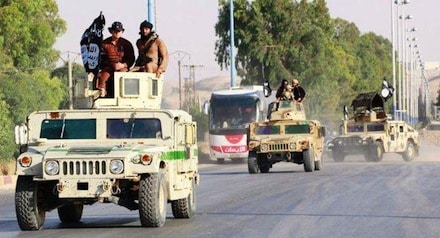Whenever there is a problem anywhere in the world, the first thing US lawmakers and Beltway foreign policy experts do is urge the US to send weapons. Libyan “freedom fighters” want to overthrow Gaddafi? Send weapons. Eastern Ukraine wants to break away from US-backed government in Kiev? Send Kiev weapons. Jihadists want to overthrow Assad in Syria? Send them weapons. Kurds promise to fight ISIS in Iraq? Send weapons.
The track record of such a policy is obvious for all to see. If anyone is still confused, ask a Libyan or a Syrian Christian about it. Yet the failed approach continues to be the cornerstone of US foreign policy.
It’s great business for the military-industrial complex (which funds most of the Beltway think tanks). After the Iraqi army turned and ran in Ramadi last month, the US government decided to rush in 1,000 anti-tank missiles to destroy the US tanks they left behind. That means — if as expected they are to be Javelin missiles — that about $8 million will be spent to destroy untold millions worth of US tanks, Humvees, and other vehicles left in Ramadi as the Iraqi army fled.
But that’s small potatoes compared to the disaster in Mosul last year. Today Iraqi Minister Haider al-Abadi admitted that his army lost some 2,300 armored Humvees when ISIS over-ran the city.
According to a State Department estimate, a planned sale of 1,000 armored and fully-loaded Humvees to Iraq would cost approximately $579 million. So we can extrapolate that the 2,300 lost Humvees in Mosul last year cost the American taxpayer somewhere in the neighborhood of a billion dollars.
But perhaps more importantly even, it means, as former State Department official Peter van Buren put it, that “basically the US is supplying all sides of the conflict.”
Has there been a more reckless policy in the history of foreign policy than the one the US is pursuing in Iraq and Syria, purportedly to defeat ISIS?


